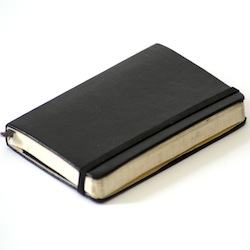Keeping a fishing log is something of a lost art among casual fishermen. The ironic thing about it, though, is that technology (things like laptops and smartphones) make recording your catch easier than it’s ever been. The idea behind fishing logs is that, aside from being able to prove your fishing buddies wrong about when and where you caught that lunker, you’ll be able to use it as a reference for future fishing. In a way, logs allow you to become your own fishing guide when you’re on the water and at a loss for what to do. So whether you’re planning on keeping a digital spreadsheet or using a good old fashioned pen and notebook, here are the essential ingredients of a useful fishing log entry.
- Date, place, and time For each fishing trip, make a header that includes the days you fish, the times you fish, and the body of water you’re on. It will make entries about individual catches easier and serve as a quick reference when you’re flipping back to it.
 Weather and water conditions Recording the fish you catch won’t do you much good in the future if you don’t know what conditions you landed them under. For the weather, be sure to record things like air temperature, cloud cover, and wind speed. For water conditions, don’t forget to include clarity and water temperature. Having these details will give you a picture of good fishing methods for similar conditions on similar waters.
Weather and water conditions Recording the fish you catch won’t do you much good in the future if you don’t know what conditions you landed them under. For the weather, be sure to record things like air temperature, cloud cover, and wind speed. For water conditions, don’t forget to include clarity and water temperature. Having these details will give you a picture of good fishing methods for similar conditions on similar waters.- Individual fish caught When you catch a fish, there’s a few things to jot down right afterward. First and foremost, include the size and weight of the fish. This will help you get a general idea of where the big ones are holding. Also include the type of bait and presentation you were using so you can match them to similar conditions on future outings. Finally, specify where on the body of water you were when you hooked the fish. Over enough time, a pattern of “hotspots” for fishing will emerge.
- At day’s end, write down a few anecdotal notes about the day. This is less about practical fishing than it is about looking back and having fun. If something especially interesting or funny happens on that day of fishing, write it down so you can look back on it in detail and retell it to your friends – with a few embellishments, of course.
With all this information and some quality time spent on the water, your fishing log will quickly begin to take shape. Using one will invariably make you a more effective and efficient fisherman over time, especially on the lakes, rivers, and ponds that you frequent. Additionally, being able to look back on past successes and interesting side notes is makes keeping fishing logs a nice and nostalgic endeavor.

